
Author: Nick Sullivan
Narrator: Nick Sullivan
Length: 7 hours 35 minutes
Series: Caribbean Dive Adventures, Book 2
Publisher: Wild Yonder Press
Released: April 30, 2019
Genre: Action-Adventure
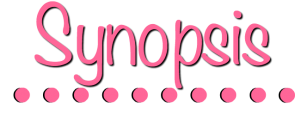
Sometimes, the brightest corners of the world can hold the darkest shadows. Rising steeply from the turquoise waters of the Caribbean, the Dutch island of Saba is a sleepy paradise, the mountainous slopes dotted with little red-and-white cottages and the seas teeming with life. But this little oasis has a less tranquil history, many of its inhabitants having descended from smugglers and pirates. Boone Fischer and Emily Durand are eager to explore their new home, but their peaceful lives are about to be shattered, as one of history's most powerful hurricanes begins to form - and, as if that weren't enough, a savage evil has made its way ashore. In this sequel to the best seller Deep Shadow, Nick Sullivan brings listeners to another fascinating corner of the world and sends them into a swirl of action and adventure.

Born in East Tennessee, Nick has spent most of his adult life as an actor in New York City, working in theater, television, film, and audiobooks. After recording hundreds of books over the last twenty years he decided to write his own. Decades of scuba diving and travel inspired the Caribbean Dive Adventures. The first book in this series, the best-selling Deep Shadow, is set in the island of Bonaire. Deep Cut picks up on the little Dutch island of Saba. For more information on this series, visit www.deepnovels.com
And for something completely different, visit zombiebigfoot.com to learn about his first novel, Zombie Bigfoot, which was #1 in Horror Comedy on Amazon.
Nick has been recording audiobooks since 1994 (starting on reel-to-reel) and has been listening to them even longer. He has narrated over four hundred fifty titles in nearly every genre.

Deep Shadow (Book One) is available for review through the Adopt-An-Audiobook program. Request your copy today!

Q&A with Nick Sullivan, Author and Narrator of Deep Cut
- Tell us about the process of turning your book into an audiobook.
- I’ve been narrating for so long, I think and write in a manner that is conducive to the audiobook format… much to the chagrin of my editor, as I often would opt for a sentence structure that was more in line with how a person would actually say the sentence. The Chicago Manual of Style would not always concur with my decisions!
- Was a possible audiobook recording something you were conscious of while writing?
- Since I came into writing by-way-of narrating, I absolutely have the audiobook in mind throughout the writing process. I will make character choices based on what dialects I can comfortable with. You’ll likely never have a Bostonian in my books. That’s my kryptonite.
- How did you wind up narrating audiobooks? Was it always your goal or was it something you stumbled into by chance?
- It was a random stroke of luck. I was doing a film shoot and the woman playing my wife had been narrating for Talking Books in New York City. And just a few days before, I happened to have taken an ad from a bulletin board: the Jewish Braille Institute was looking for actors to narrate books for the blind for free. I called them… set up a time… then called Talking Books and let them know I had experience recording books (or would, by the time I showed up!)
- A lot of narrators seem to have a background in theatre. Is that something you think is essential to a successful narration career?
- I used to think so… but there are some truly excellent narrators who don’t have an acting background, so I stand corrected. In general, I DO think a person who has made their living as an actor is going to be better suited to delivering dialogue... but that doesn’t mean they will always be a better storyteller!
- What type of training have you undergone?
- I studied theater in undergrad and grad school, and went to London to train at the British American Dramatic Academy. I had the good fortune to work with a number of teachers who specialized in dialects.
- Were there any real life inspirations behind your writing?
- I set the books of my Deep Series in places I’ve dived, so there are numerous occasions when I will base plot points on things I’ve experienced, or create characters who are inspired by the people I’ve met in the islands. Emily is based on one such person… and that individual was even goofier than my fictional recreation.
- What do you say to those who view listening to audiobooks as “cheating” or as inferior to “real reading”?
- It’s not “cheating”, it’s just different. I don’t think people should replace reading with audiobooks, since reading for yourself allows you to put your own mental interpretation on the book… and that’s a magical thing. But sometimes, sitting back and letting a storyteller spin the tale for you is the way to go. Plus, you can multitask!
- Do you read reviews for your audiobooks? If so, which ones stand out to you most, positive or negative? What type of the review comments do you find most constructive?
- Amusingly enough, I read a self-help book on mindfulness and meditation. It quoted a study that a negative event will carry about four times the weight as an equivalent positive event. Makes sense, in my experience. Yes, I read reviews. A lot of negative reviews are “trolly”, and most narrators know to dismiss those, but some will have some little nugget that you read and go “Oh… um… yeah. I see that.” For instance, I based my Emily character on an actual Brit I met and decided to pump her up to a full South London accent. Well, after reading some reviews from some Brits, I decided to pull her back a bit in Deep Cut. She’s still a bit more “street” than your usual Thames dialect, but I figured I might’ve picked an overly strong dialect for her.
- What’s next for you?
- I have to decide where to set the next book! And maybe take a trip there. I also have the sequel to my horror comedy, Zombie Bigfoot, to finish. And, in the immediate future, I’ve got six books to narrate for other authors.


Top Ten Perks of being the author and the narrator
- Narrators make the best copy editors. I always find typos when narrating, even in big front-list titles from major publishers.
- If I find a clunky sentence, I can change it! I always narrate the book before sending it to the formatter. With “Deep Shadow” I ended up with a couple pages of tweaks.
- I get to choose characters with the audio in mind. Some accents are my kryptonite. You will find no people from Chicago in my books because I sound like that SNL “Da bearz” sketch.
- I get to try out NEW accents. In my first book, Zombie Bigfoot, I wanted an Afrikaner. That accent was tricky but I finally got it locked in and absolutely loved it.
- No back and forth during edits… the person who reads is the person who greenlights the project.
- I know the emotional intent of particular scenes and can color the performance accordingly.
- I know how to pronounce most of what I put in the book ahead of time. While writing the book, I will look up how to say locations as I add them.
- I get to submit myself for reviews on two different levels.
- It increases my fan base for purchases—those that like my narration… and those that like my writing.
- I get to keep ALL the royalties! Mwahahahahaha! Well… “all” of the portion the distribution companies let me have.
Giveaway: 1-Month Audiofile Magazine Subscription
Apr. 25th:
Apr. 26th:
Apr. 27th:
Apr. 28th:
Apr. 29th:
Apr. 30th:
May 1st:
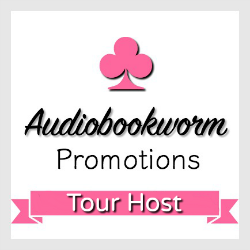




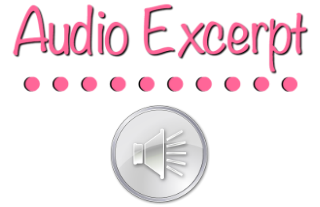
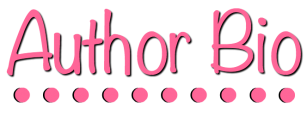

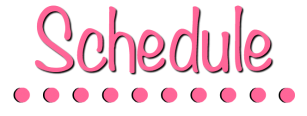




No comments:
Post a Comment